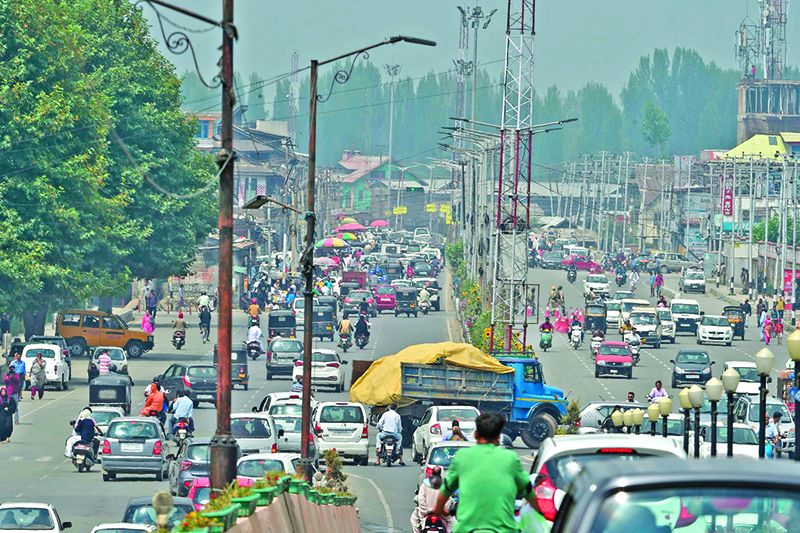
SRINAGAR: At
least 500 incidents of protest have broken out in Indian Kashmir since New
Delhi revoked its autonomy more than three weeks ago, a senior government
source said yesterday, as authorities promised to create 50,000 jobs in the
restive region. The Himalayan valley is under a strict lockdown, imposed hours
before India's decision to bring Kashmir under its direct rule. Movement is
restricted and phone and internet services have been cut.
The lockdown, as
well as the deployment of tens of thousands of extra troops to reinforce the
500,000 based in Kashmir, was ordered amid fears of unrest in a region where
separatists have waged an armed rebellion against Indian rule since 1989. But
protests have broken out, including in the main city of Srinagar, with police
using pellet guns and tear gas to disperse the crowds. A senior government
source told AFP at least 500 protests and incidents of stone throwing have
occurred since August 5, with more than half taking place in Srinagar.
Nearly 100
civilians have been injured so far, with a further 300 police and more than 100
paramilitary troopers hurt, the official added. "The number of protests
could be much higher and bigger without the blockade in force," the
official told AFP, adding that "anger and public defiance is constantly
rising". "Efforts for easing the conditions are made all the time but
nothing seems to be working for now. There is nervousness spreading in the
security establishment."
'Every life is
valuable' -
Jammu and Kashmir
governor Satya Pal Malik said yesterday the lockdown was necessary because
"every Kashmiri life is valuable to us". "There has been no
civilian casualty, only the few who got violent were injured, these also have
below the waist (non-fatal) injuries." AFP has spoken to relatives of
three people they alleged died due to violence from the security forces,
including a man and woman who died in separate incidents after tear gas was
released near them, and a teenager who drowned while being chased by police.
Malik added that
the decision to revoke autonomy-which will allow non-residents to buy land and
apply for government jobs in the region-would "change the face of Kashmir
in six months". He vowed to preserve the "identity, language, culture
and heritage of Kashmir", which locals fear will be diluted if there is an
influx of migrants from other parts of India, and create 50,000 jobs in the
next few months.
The lockdown
would be eased gradually, although internet services will continue to be
suspended for some time, he said, stressing that the web was being used by
agitators. The Supreme Court yesterday gave the government one week to respond
to a legal challenge calling for an end to the communications blackout to allow
for media reporting. The court also said several petitions challenging the
removal of the constitutional clause on Kashmir's autonomy would be heard in
October.
Defiance
In Srinagar,
residents are refusing to resume their normal lives in an act of defiance, an
AFP reporter said. While authorities have reopened schools, students have
stayed away. Told to keep open all day or "don't open at all", some
shops have remained shut. At least 4,000 people have been detained across the
valley, security and government sources told AFP last week, with a few released
since then. Another senior government official said yesterday that at least
1,350 protesters-described by police as "stone-pelters"-have been
arrested since August 5.
Meanwhile in
Muslim-majority Kargil, activists said the town was observing a "complete
shutdown" today to protest against its separation from Kashmir. New
Delhi's move will split the state into two territories, with Kargil becoming
part of the Ladakh region and Jammu and Kashmir forming the second territory.
"The authorities promised to negotiate with us since the majority of the
people in Kargil want to stay with Jammu and Kashmir," Sajjad Hussain
Kargili said. But no officials had met with local leaders so far, he said.- AFP










